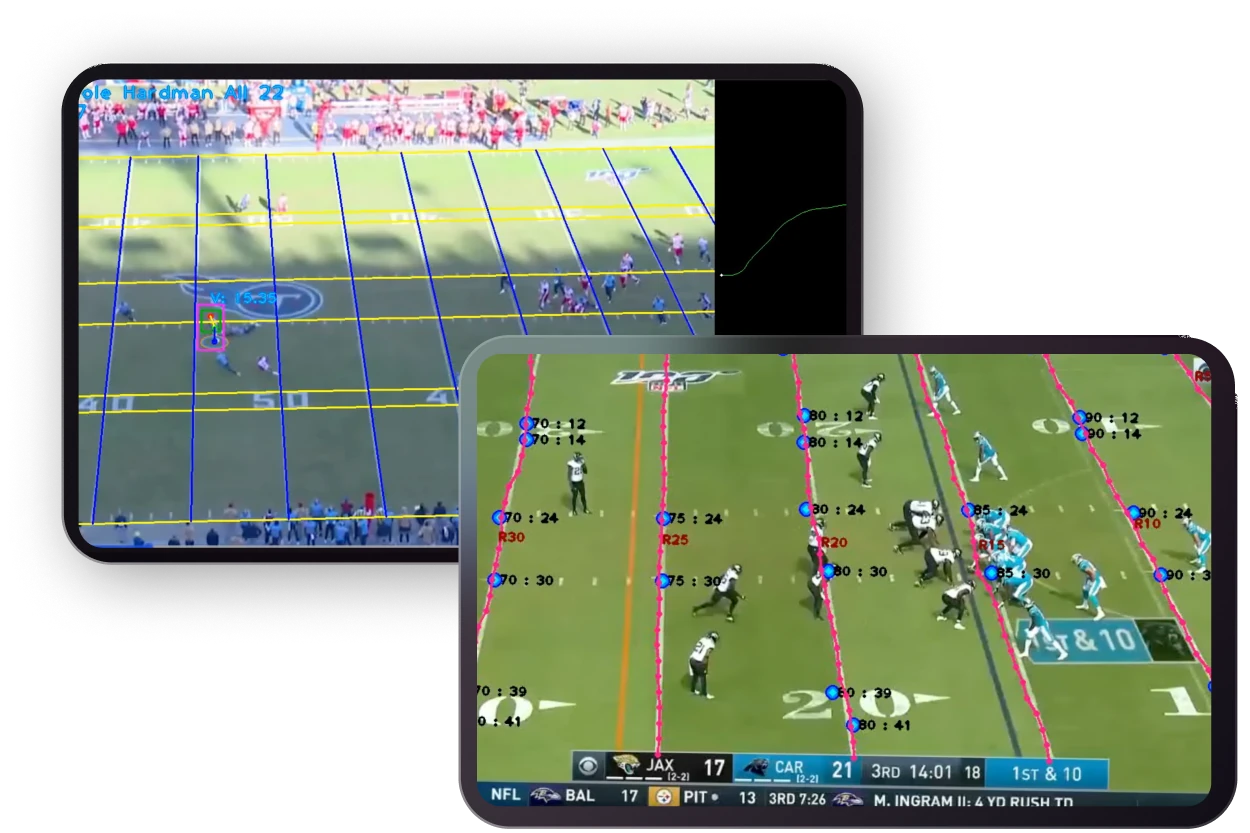Artificial intelligence technologies have already filled the world. They transformed diverse sectors - from the automation of routine tasks to advanced medicine. Our article is about the influence of AI in eSports and its role in strategic improvements for player training.
This sport was previously considered a niche hobby. Now, it is a global phenomenon. Tens of thousands of people take part in eSports competitions. Millions root for the players. It is a serious level. Here, technological advantages are already required to win.
AI will significantly improve how players and teams approach training and develop strategies. Machine intelligence technologies improve the performance of a particular sport and optimize team games.
In this brief, we will consider the benefits of implementing AI for eSports. You will discover real tools and platforms based on AI, which change the idea of modern eSports. So, buckle up, and let’s get down to business.
Performance Analysis in eSports Teams
Three years ago, the eSports market reached a value of $1.39 billion. The global eSports industry now includes over half a billion admirers. And this is a young, active generation, approximately 18 to 34.
So why has AI become such a unique tool for this field?
First, AI helps quickly analyze players' effectiveness and the gameplay itself. With the help of machine learning algorithms, it is possible to quickly figure out how a team can interact best to achieve high results. It becomes obvious which players are strong and weak in what. Knowing this, coaches can assemble and coordinate a team correctly.
Secondly, AI-powered systems are needed to track accurate data. It includes the game's reaction speed and movement patterns and enhances game strategies and players' skills. What's important is that AI doesn't just provide information with the data we have at the moment. No, it also helps build a strategy for improvement and gives game predictions.
Let's look at the AI eSports platforms that provide such deep analysis.
Mobalytics
This platform uses machine learning algorithms to evaluate individual gameplay. With Mobalytics, you can evaluate your gameplay in League of Legends. There you get a GPI (player performance index). It can be applied to compare with other players' performance.
STRATZ+
Dota 2 is a very versatile and complex discipline to master. That is why this game has so many diverse tools, including AI.
STRATZ+ helps players in strategy games like Dota 2, especially during the draft stage. This tool can analyze available heroes. With the help of AI, STRATZ+ can advise you on how to choose a team composition to win. Synergy, individual player preferences, and the opponent's level are considered.
Itero AI сoach
This draft and macro strategy analyzer helps players master their skills in League of Legends. Itero AI сoach monitors hundreds of account statistics and advises which sphere to improve.
All the tools we've listed help eSports coaches invent new approaches to training. Coaches and individual players can better develop an overall game strategy. With the help of artificial intelligence, it becomes simpler to enhance the synergy within the team. The performance analysis also assists in predicting each player's growth.
Fan Engagement in AI eSport Broadcasting
Artificial intelligence not only improves the level of eGames but also the experience of millions of viewers. AI algorithms help enrich the experience, making watching a game more exciting and immersive.
Voting
AI can analyze matches in real-time and provide quality betting opportunities. How? By taking into account in-game data. Viewers get more accurate predictions about the game and the players and can win more.
Understanding the nuances of a game, or the behind-the-scenes, is essential to making fewer mistakes. AI can predict how a game is likely to go and who is likely to win. It is unique information for audiences to use to their advantage.
Broadcasting
How are the benefits of AI in sports broadcasting? Artificial intelligence immediately identifies top moments in the game in real-time and highlights them instantly. For example, the moment could be a wow strategy. Using AI algorithms, commentators can continue talking while the necessary footage appears automatically. Result? The broadcast is smoother and more enjoyable to watch.
Highlighting moments
Fans also love to share videos of their favorite moments from the game. Various media sources also need these videos. AI helps speed up the process of creating these highlight reels. Previously, all of this had to be edited manually, which slowed the process down considerably.
Interactivity
AI also adds interactivity for viewers. Examples of interactive features include virtual commentators, live polls, and other elements. It creates a feeling among viewers as if they are participating in the game. Such interactive elements help to expand an involved audience.
Explore the role of AI in injury prevention
Content Personalization for eSports Spectators
Artificial intelligence can personalize game streams. AI algorithms process what people like to watch and which players they follow and tailor the stream accordingly. For example, AI can suggest matches to viewers immediately featuring their favorite players. Also, deep learning algorithms can offer highlights to spectators with their preferred teams of games. It is all about content personalization.
Let's take an example. If a fan frequently watches League of Legends matches featuring a certain team or player, they will be offered content related to that game. It could be player interviews, highlight reels, and more. Fans will be more likely to engage with content that matches their interests. Personalized recommendations are effective in terms of audience satisfaction.
What else can keep fans engaged other than content specific to their favorite game? Because AI can spot patterns, the technology can suggest similar matches or players. It can engage viewers more deeply in eSports and expand their knowledge.
There are many pros of AI-driven eSports content personalization. Some of them are more obvious. So, let’s take a closer look:
-
Better engagement. AI delivers content to fans that is relevant to their interests, keeping viewers engaged with what's happening in the industry;
-
Broader but tailored recommendations. AI matches viewers with content they are likely to enjoy beyond their favorite teams. It opens up a wider world of gaming to fans. They can learn more about future competitions and other popular games;
-
Help with fan retention. Personalized content keeps viewers engaged in the eSports industry for longer, whether it's highlights of exciting moments or announcements that a match with their favorite player is about to begin;
-
New knowledge. AI can analyze the backstage of games, for example, from the moment the fan's favorite team begins to lose positions. AI can explain what can be improved in the future. This interesting information is not always available to viewers of standard video platforms;
-
Customized advertising. AI algorithms identify what viewers are paying attention to and which ads they watch longer. It helps tailor advertising campaigns. The outcome is higher conversion rates;
-
Monetization opportunities. AI is a great way to go if you want to nudge your audience towards premium subscriptions. Personalized content with offers makes them more likely to buy.
There is a lot of competition for views and attention in the marketplace right now. That's why AI systems are so valuable. Because they offer tailored and personalized content to the audience's tastes, they are less likely to leave the platform if they don't have to spend much time searching for their favorite teams. Instead, these teams and players will pop up in their feeds.
Also, if you want to monetize the platform through premium service sales, then customized content can retain more viewers and drive them to purchase.
Case Study: AI-Powered Football Player Performance Analysis

Training Simulations for eSports Athletes
Artificial intelligence allows eSports athletes to train at a completely different level. Athletes receive tools for simulated battles. It means that they compete with virtual opponents. They can hone their skills and strategies. It is a very effective approach for effective play.
What is the main benefit of applying AI in eSports training? Sports can try different opponent styles. For example, players can choose not only the basic level. They can compete with high-level opponents and test their level of capabilities. Having gained such experience, athletes will play even more efficiently.
What else can AI do for training? Technologies can create different types of opponents. For example, aggressive opponents or those who are in a more defensive position. An athlete needs to be prepared for unpredictability. The human factor and style of play are difficult to predict and identify patterns. However, AI helps to prepare for any situation. The athlete learns to make decisions faster and see small details from which important decisions are made.
Also, the AI adapts the training plan to the specific player. The necessary range of skills is selected. It could be reaction time or team coordination. From this, training scenarios are created. It is important that the program remains challenging enough and progresses gradually. At the same time, the training should be at least doable, without excessively high demands.
We've rounded up real-world examples of platforms that use AI to improve eSports performance. Players obtain customized, adaptive, and advanced training methods by choosing them. Below, you can see these platforms.
Skillz for Dota 2
The AI in this platform helps create different training modes. Each mode reproduces game scenarios for a wide range of situations. Players can compete against different opponents and challenge them as if they were real.
GamerSensei
It is one of the most well-known platforms for training eSports players. Players get their coach who suggests exercises for them. The order and difficulty of exercises are adapted to the player's skill level. How do AI algorithms achieve such personalization? They analyze the game and the player's skill in real time.
This platform helps players improve their reaction accuracy, practice teamwork, and more. GamerSensei also tracks the player's progress as they complete the exercises. The athlete receives new, adapted programs so that they do not stagnate.
League of Legends practice tool
League of Legends practice tool is another top AI tool for eSports athletes that provides players with a safe environment to hone their skills. It means they compete as if without the risk of losing. Players can practice specific skills. For example, it could be a "last hit" or another action in the game. The AI algorithms analyze the athlete's progress and provide challenges at their level, gradually increasing it. As you can see, AI is already integrated into advanced eSports coaching platforms.
Our expertise
Our team at Reqestum are true professionals in AI development services. One of our top AI projects is the system for recognizing athletes' movements. This software can track all changes in the movements of real players on the football field.
The technologies behind this project are also applicable to the field of eSports. It is the recognition of poses and the smallest details by which coaches can create a training program and identify patterns in the player's style.
We can help you with both eSports and sports software development. Turn to us to discuss your vision.
Talent Scouting and Team Building in AI eSport
All eSports organizations are trying to recruit the best athletes. Maybe not Johan Sundstein (the most expensive athlete in Dota 2), but promising and talented ones.
AI is a big help here. Artificial intelligence makes the recruiting process more accurate and comprehensive. It evaluates both a player's approach to the game and their skills. With AI, predicting who the next star is will be much easier.
What often makes the hiring process difficult? It's the subjective perception and evaluation of candidates. AI analyzes in-game data and evaluates players' skills and performance on a different level.
To truly identify a talented player, recruiters need to understand how they react and what decisions make. It's important to see how effective they are in teamwork. Another vital point is that an athlete must perform well under pressure, such as time. AI can analyze and predict all of this.
Mobalytics and GamerSensei tools can help eSports teams search for new talents. These platforms analyze the skills and qualities of players in-depth and help monitor the development of the candidate. Detailed player profiles that these platforms provide are very helpful to recruiters. The profiles display the player's strengths and zones for further improvement and development.
AI can also analyze the behavior of players at tournaments. In addition, players interact with each other and even engage in activities on social networks! As a result, the scout gets a complete picture of each athlete.
Artificial intelligence systems optimize and streamline the recruiting process itself. How? AI can filter candidates based on specified performance criteria. It means you do not need to spend much time and resources on lengthy tests. Patterns become obvious immediately.
In addition to hard skills, AI determines how adaptable the candidate is and fits into the team or organization's system. It is important that the new talent improves the team's dynamics and does not slow it down.
Let’s build custom software that drives results
AI eSports Future Opportunities and Challenges
AI is becoming an integral part of many areas, including eSports. However, it is necessary to be warned about the problems that have yet to be fully resolved.
The main considerations of AI implementation
The most important issue is the ethical side of using AI. What does this mean? The algorithms must be unbiased since AI helps select players, personalizes content, and performs many other tasks. It is important that the player is not underestimated or his game is interpreted incorrectly.
Yes, AI systems must be trained on complete data and not on incomplete or biased data. If the systems are trained incorrectly, they may set the wrong priorities. It will lead to financial losses for eSports organizations and to unequal opportunities for athletes when recruiting a team.
It is also important to consider that confidential data must be protected. Artificial intelligence constantly operates with such huge volumes of player data that special care is needed here.
The reduction of jobs for people is another issue with an asterisk. AI is on the cusp of replacing both coaches and broadcasters, raising serious concerns for the eSports industry. Ensuring transparency is another dilemma. AI provides valuable insights, but sometimes the complexity of its algorithms can make it difficult to understand how these insights are generated and from what sources.
The future of eSports
A glimpse into the future - AI in eSports brings us many unique opportunities, such as integration with augmented reality (AR) and virtual reality (VR). These trends will make training for athletes even more realistic.
AI technologies can be used if players need interactive coaching in real-time and in a virtual environment. What do you get from this? Players obtain instant feedback on their actions. It allows them to learn and develop faster.
Fans love personalized content. With the further development of AI, they will receive improved content in real time. It contributes to greater engagement. In addition, AI systems are developing and will become more complex. It foreshadows that there will be more and more training for individuals and a team.
The future of eSports also promises more monetization opportunities. With improved personalization for fans and targeted advertising powered by AI, the eSports industry will grow. And so will the revenue of brands within it.
Conclusion: humans vs machines? No, humans & machines
Artificial intelligence is transforming the eSports industry from the inside out. New technologies help athletes learn faster, scouts recruit talent better, and fans of the eSports industry get a better experience.
The potential for AI development in eSports is huge, which is confirmed by many influential people from this industry, such as Chris DeAppolonio, CEO of Evil Geniuses. In the future, AI will provide even more accurate methods for developing game strategies, training players, and interacting with fans. In addition, the monetization opportunities in this area will only increase. Yes, some challenges still stand in the way of fully implementing AI into processes. However, it will not be like it was before.
If you are looking to use AI to improve your eSports strategy or create an engaging fan experience, we are here to help. Contact us to discover how AI can advance your eSports efforts further.

Our team is dedicated to delivering high-quality services and achieving results that exceed clients' expectations. Let’s discuss how we can help your business succeed.


SHARE: